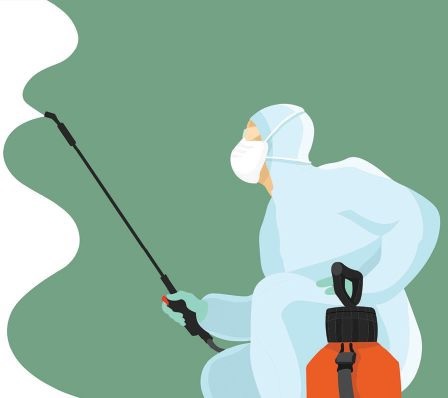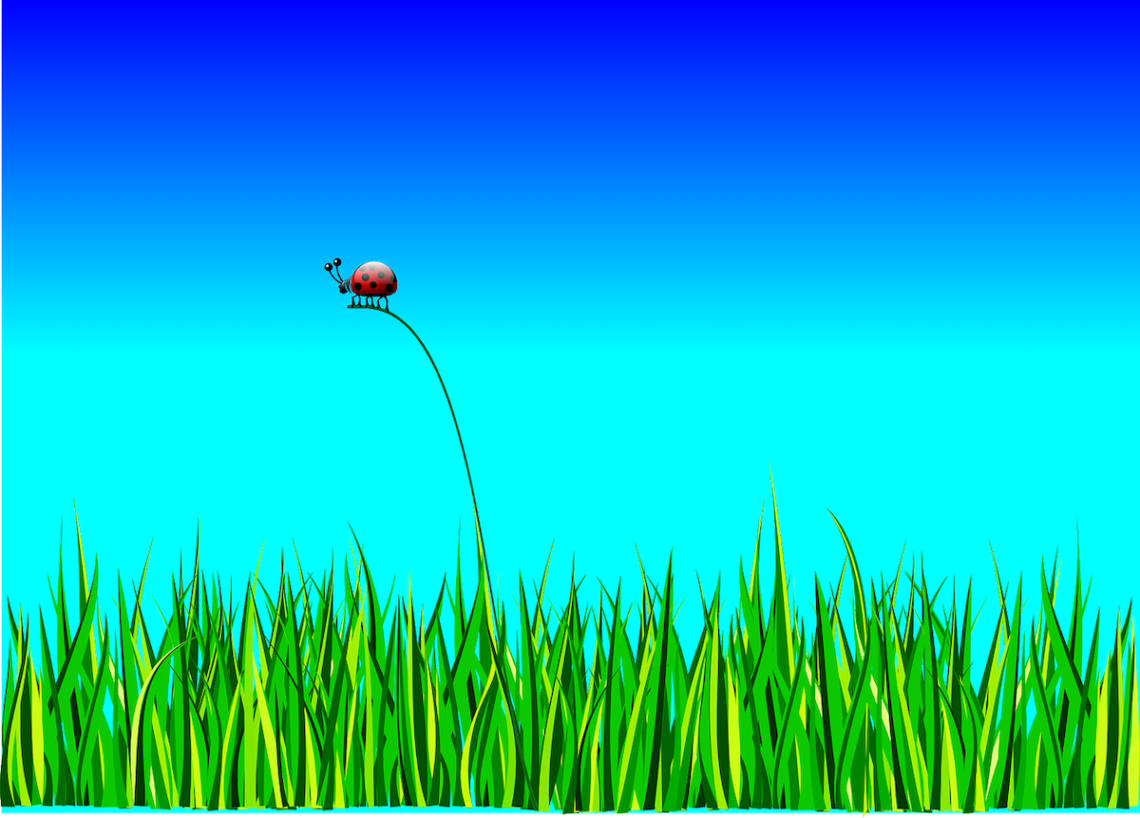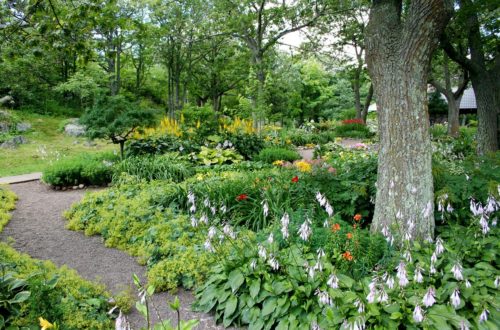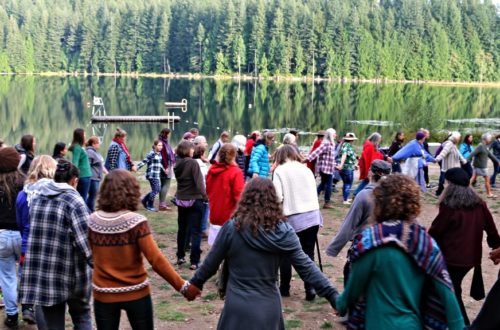Where Have all the Bugs Gone? Why are insects important?
“When I was a kid….” No, I’m not going to say that I had to walk many miles to school in the snow. However, I will say that I remember that on summer evenings we would go for rides in the countryside, all of us in the family car, the windshield of which would be covered by smashed bugs. Loads and loads of smashed bugs. Ask any older person – they will remember that. I realized a few years ago that the bug-spattered windshields no longer happen. I will admit that it’s kind of nice not to have to soak the windshield and then scrape off the dead bugs. But what does that change mean? Where are the bugs now? What are the causes and consequences? Why aren’t there lots of bugs? Why are insects important? Should we be concerned? If we don’t have bugs, what happens to the birds?
Face it, most of us don’t much care for insects. They’re creepy crawlies. They may bite or sting. They buzz. We have been convinced that we need lots of chemicals to keep them from ruining our yards, particularly the lawns. Hmm, when did that start? There was a boom in chemical use in yards and homes beginning in the 1960s. I recommend watching The Biggest Little Farm to understand the interplay of different species in a healthy ecosystem.

Pesticides are chemicals that may be used to kill fungus, bacteria, insects, plant diseases, snails, slugs, or weeds, among others. These chemicals can work by ingestion or by touch, and death may occur immediately or over a long time. Insecticides are a type of pesticide that is used to specifically target and kill insects. Some insecticides include snail bait, ant killer, and wasp killer. Herbicides are used to kill undesirable plants or “weeds”. Some herbicides will kill all the plants they touch, while others are designed to target one species.
https://www.llojibwe.org/drm/greenteam/pesticides.html
Most of us know that there are “good” insects like bees; they pollinate our crops and produce honey. Ladybugs and dragonflies are predators that control aphids and other insects that damage plants. However, most of us do not understand the critical roles insects have in maintaining stability in the ecosystem.
Here are a few examples from the University of Nebraska (https://entomology.unl.edu/scilit/recyclers):
“Imagine a world where leaves that fall from a tree or poop never disappeared…they just accumulate over time. Soon we would be knee-deep in dead plants, animals, and poop. Many insects feed on these resources and break them down into nutrients that help plants grow. These insects are called Saprophages (from the Greek words “sapros”, meaning rotten, and “phagein,” the verb to eat or devour).
Examples of their beneficial work include:
Insects That Feed on Dead or Dying Plant Tissues
There are many soil- and wood-inhabiting species that shred leaves or tunnel in deadwood. This helps plant materials to decay quickly. Over time, decay creates humus, a type of soil rich in organic matter.
Insects That Feed on Dead Animals (Carrion)
Many insects are attracted to and feed on carrion, including beetles, flies, wasps, and ants. Different species show up and feed on a dead body for a limited period of time, but altogether, these insects rapidly consume and/or bury the decaying flesh.
Insects That Feed on the Poop of Other Animals
These insects are coprophages (feces eaters) and include mostly flies and dung beetles. Dung beetles lay their eggs on poop, and the larvae feed on that. Dung beetles fall into three categories depending on how they use the poop. There are numerous benefits from poop-eating insects. They help plants grow by quickly removing poop from vegetation…. without dung beetles, grazing land would become unusable because the poop would take a lot longer to go away. And dung beetle tunneling helps get air to the roots of pasture plants and helps rainwater soak in”.
These examples help us visualize and comprehend just a little more about what the world would be like without insects. Ecosystems have evolved over the ages to work symbiotically. Unfortunately, our use of chemical pesticides and insecticides has disrupted that harmony and disturbed the balance. In my opinion, we cannot wait for someone else to do something about this. We all need to stop ignorantly killing things and learn more about how interconnected ecological systems function if we want to avoid harming Nature’s balance and, therefore ourselves. Here are further examples of the essential roles insects play from https://bit.ly/3AcnuYo
“Climate change has pushed environmental and sustainable development regarding biodiversity issues several notches up in the governments’ priority list. In our talks about biodiversity and wildlife, however, insects hardly make the cut.
The ecological importance of insects cannot be underestimated: They form the basal part of the food pyramid and impact our agriculture ecosystems and human health.
Their extinction can have a cascading effect on the upper levels of the food pyramid. Insects are increasingly susceptible to extinction due to the increasing climate crisis. Rampant and indiscriminate use of chemicals in commercial agricultural practices, mainly monocropping systems, has been taking a toll on insects in the vicinity of farmlands and plantations. While everyone is talking about sustainability in agriculture, the role of insects has largely been ignored.
A few common insects whose existence is taken for granted and their ecological relevance are:
Butterflies
Butterflies are essential pollinators like bees. Species diversity and density of butterflies indicate an excellent diversity of plants in an area. Several types of butterflies have specific host plants. Climate change, forest degradation, habitat loss, unavailability of hosts, and nectar plant species are among the primary reasons for a decline in the butterfly population. This leads to the loss of plants species that depend on the butterflies for pollination….Backyard gardening and growing host plants in public spaces are important strategies to conserve butterfly species.
Dragonflies
Dragonflies, one of the most widely recognized insects, need clean aquatic systems and are hence a good indicator of the health of local aquatic systems. These, along with damselflies, are well-known biological predators, with both larvae and adults acting as natural bio-control agents. Unfortunately, they are highly sensitive to changes in their habitats and are declining due to increasing habitat loss, anthropogenic activities, pollutants, climate change, and rapid urbanization. For their conservation, chemical fertilizers and pesticides have to be prohibited or minimized in agriculture systems.
Grasshoppers
Grasshoppers feed on different plants and can cause severe damage to economic crops. However, in a bio-diversity-rich region, they are an essential component of the food chain, being an important food source for many birds. In addition, grasshoppers and insects such as crickets are rich in protein and are often consumed by people.
While monocropping systems can turn grasshoppers into pests, maintaining a diversity of plants can ensure the grasshopper population remains in balance, keeping the ecosystem viable and healthy and retaining bird biodiversity. In turn, the healthy ecosystem tends to keep the number of grasshoppers under control.
Ants
Ants are in the most abundance. Ants act as scavengers/ decomposers by feeding on organic wastes and other dead animals. Ants also aerate the soil. Heavy use of chemicals in agriculture causes harm to ants.
To read the entire article, go to this link: https://bit.ly/3AcnuYo
I was outside picking peas and realized that I had missed the biggest one, which was literally right in front of my face. It was just like when you can’t find something in the fridge, and there it is, smack dab in front of your eyes. I think that may be what we have done in regards to what makes our ecosystem function.
Maybe the answers are right in front of us if we take the time to notice them.
Additional Resources
Engaging TED Talk by Danae Wolfe https://www.ted.com/talks/danae_wolfe_why_we_need_bugs
Watch: The Biggest Little Farm and The Need to Grow https://www.youtube.com/watch?v=dRBoXE3pw80
https://www.si.edu/spotlight/buginfo/benefits
https://www.llojibwe.org/drm/greenteam/pesticides.html
Pesticide Action Network info http://www.panna.org/pesticides-big-picture/myths-facts
Betty Shelley is a Master Recycler (class #2), a former Metro Recycling Information Specialist, an Agent of Change, and the founder of Reduce Your Waste Project. Betty found Northwest Earth Institute in 1993 when it was founded in Portland. The NWEI discussion courses made her more aware of the choices we make as well as the consequences of those choices. Since 2006, Betty and her husband, Jon, have had just one 35-gallon can of garbage per year. The Shelleys offer the class “Less is More: Getting to One Can of Garbage a Year”. www.reduceyourwasteproject.com







